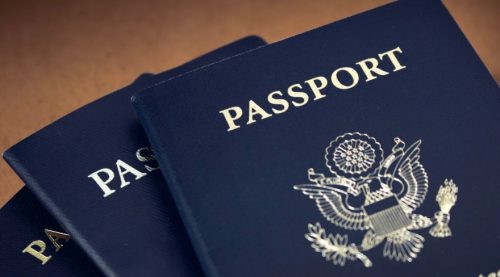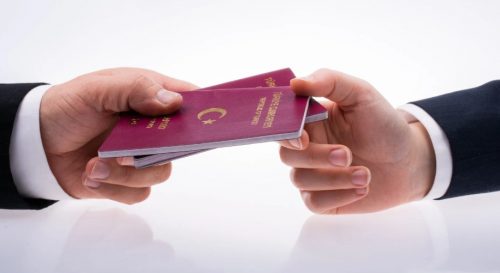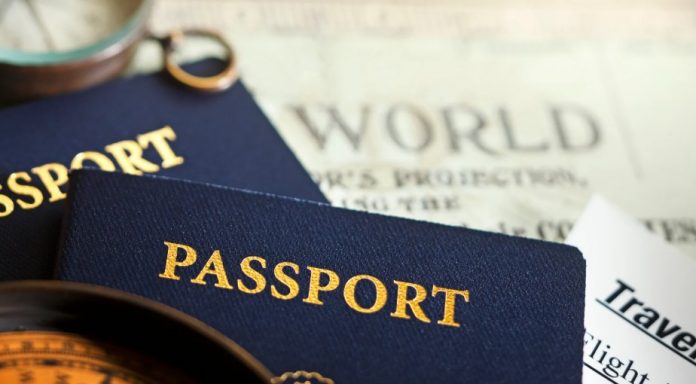The UK government has announced an increase in passport renewal fees, set to take effect from 10 April 2025.
This change has prompted officials and travel experts to urge UK passport holders to renew early to avoid higher costs with new rules impacting validity and travel requirements, especially for destinations within the EU renewing now could save both money and stress.
This article outlines the upcoming fee changes, explains their implications, and provides guidance on how to renew your passport efficiently.
Why Are UK Passport Holders Being Warned to Renew Before April 10?

UK passport holders are being strongly advised to renew their passports before 10 April 2025, as new fee increases are set to come into effect.
The changes, announced by the Home Office, will affect both online and postal applications for adult and child passports. The price hike has prompted a wave of concern among travellers, particularly those planning to travel later this year or in 2026.
Industry experts and travel advisors have taken to social media platforms, including TikTok, to inform citizens about the upcoming cost changes and the benefits of renewing early. With millions of Britons holding passports nearing expiration, the urgency has never been greater.
What Is the New Passport Renewal Fee in the UK?
From 10 April 2025, the standard adult passport renewal fee for online applications will increase from £88.50 to £94.50, representing a 7% increase. This may appear modest at first glance, but for families renewing multiple passports, the additional costs can quickly add up.
For children, the online renewal fee will rise from £57.50 to £61.50, pending parliamentary approval. The government has also proposed fee adjustments for postal applications, which are traditionally more expensive than their online counterparts.
How Much Will Passport Fees Increase for Adults and Children?
The upcoming changes affect both adults and children, whether applying online or via post. Here’s a breakdown of the proposed fee increases:
Adult Passport Renewal
- Current Online Fee: £88.50
- New Online Fee (from 10 April): £94.50
- Postal Application Fee: £107 (up from £100)
Child Passport Renewal
- Current Online Fee: £57.50
- New Online Fee (from 10 April): £61.50
- Postal Application Fee: £74 (up from £69)
For households renewing multiple passports, the cumulative increase may result in significantly higher upfront costs.
Table of Passport Fee Changes:
| Application Type | Current Fee | New Fee (From 10 April 2025) |
| Adult – Online | £88.50 | £94.50 |
| Child – Online | £57.50 | £61.50 |
| Adult – Postal | £100.00 | £107.00 |
| Child – Postal | £69.00 | £74.00 |
What Are the New Prices for Postal Applications?
Postal applications will see an even more significant increase compared to online renewals. This is largely due to the added administrative costs associated with manual processing. As of 10 April:
- Adult passport applications by post will rise from £100 to £107
- Child passport postal renewals will increase from £69 to £74
Applicants are strongly encouraged to use the online system wherever possible to avoid paying higher fees.
Why Is the Government Increasing UK Passport Fees?
According to the Home Office, the fee increases are part of a broader effort to ensure that passport services are self-sustaining. The aim is to reduce the service’s dependence on general taxation, allowing users of the system to fund the costs directly.
This aligns with the government’s long-term objective of ensuring operational costs, including overseas support, lost or stolen passport handling, and border control expenses, are met through the fees collected from applicants.
Is the UK Government Profiting from Passport Application Costs?

The government has clarified that it does not make a profit from passport applications. The new fees are designed to cover processing costs, consular support overseas, and the infrastructure required to ensure smooth border checks for British citizens.
These changes have been structured to meet increasing demand and the logistical challenges of post-Brexit travel requirements.
What Do Travel Experts Say About Renewing Early?
Travel advisors and influencers are advising people to renew their passports before the new fees take effect. One TikTok creator, Kylie, highlighted the urgency, explaining that people should not wait if their passports are close to expiry.
She also clarified how post-Brexit rules in the EU mean travellers can no longer rely on the leftover months on a passport that’s over 10 years old. Now, EU destinations require passports to be no older than 10 years from the issue date, plus at least three months of remaining validity at the time of travel.
What TikTok Users Are Saying About the Price Increase?
Responses to Kylie’s warning have been mixed but generally appreciative. One viewer commented: “If your passport is due to run out and has those extra months on it, it’s advisable to get the new passport now before the price increases.” Another added, “All of my family passports expired about four years ago, need to renew them but can’t afford to book a holiday in school holidays so what’s the point?”
Others were simply frustrated by the timing and cost: “This is ridiculous,” wrote one user. However, the general consensus is that renewing before 10 April is a smart financial decision for anyone with plans to travel in the near future.
What Are the New Rules for Passport Validity in the EU?
Post-Brexit travel regulations have changed significantly for UK citizens visiting EU countries. Many are unaware that older rules no longer apply, particularly around the carryover of additional months from previously renewed passports.
Under current EU guidelines, UK passports must meet two specific conditions:
- Be less than 10 years old on the date of entry
- Have at least three months of validity remaining on the intended date of departure from the EU
How Do the EU’s 10-Year Rules Affect UK Travellers?
In the past, renewed passports often included unused months from a previous document. However, EU border agents no longer accept these carryover months.
This means even if a passport says it expires in 2026, it may already be considered invalid for EU travel if it was issued before August 2016.
This has led to confusion for many travellers, some of whom have been turned away at the airport. Renewing ahead of time eliminates the risk of invalid travel documents.
Should You Renew Your UK Passport Now?
If your passport expires in the next year, renewing now could save both money and stress. With the new fee structure set to begin on 10 April, renewing in advance ensures you’ll avoid the higher rates and comply with EU travel requirements.
Even if you don’t have immediate travel plans, renewing early is a smart precaution—especially if you or your family plan to travel later in the year or during school holidays.
Is It Worth Renewing If You’re Not Travelling Soon?
The decision to renew depends on your future plans. However, if your passport is within nine months of expiry and you intend to travel within the next year, renewing now makes sense. With the fee increase imminent, acting promptly will provide peace of mind and reduce future costs.
How Can You Renew a British Passport Online?
Renewing your UK passport online is straightforward. The government has streamlined the process through the official Gov.uk portal.
Steps include:
- Visiting the UK passport renewal website
- Filling in the online application form
- Uploading a recent digital photo
- Paying the appropriate fee
- Submitting your old passport (as required)
What Documents Are Needed for Online Passport Renewal?
The key documents typically required include:
- Current or expired passport
- Digital passport photo that meets UK standards
- Payment method for the application fee
- Proof of name change (if applicable)
Once submitted, processing typically takes between three to ten weeks, depending on demand and time of year.
What Are the Risks of Delaying Your Passport Renewal?

Delaying the renewal of your UK passport can lead to a number of issues that go beyond just paying more once the new fees take effect.
Failing to act in a timely manner could result in missed travel opportunities, increased stress, and potential complications with international entry requirements.
Understanding these risks is essential for those planning trips in the near future or even later in the year.
1. Financial Consequences
One of the most immediate consequences of delaying your renewal is the additional cost. With the fee increase scheduled for 10 April 2025, applicants who postpone their renewal beyond this date will face higher charges.
For a family renewing several passports, the financial difference can be significant. In addition to the direct increase in fees, those who require expedited processing due to last-minute travel plans may also incur additional charges for premium services.
2. Travel Disruptions
Delaying renewal can directly interfere with upcoming travel. Many countries, particularly within the European Union, have strict entry requirements related to passport validity.
If your passport does not meet these criteria, airlines may deny boarding, and border authorities may refuse entry. This could mean having to cancel or reschedule travel plans, resulting in financial loss and inconvenience.
3. Administrative Delays and Processing Times
The passport renewal process typically takes around three to ten weeks under standard service. However, processing times can be extended during peak travel seasons such as spring and summer.
Delaying renewal until these busy periods may result in longer wait times and increased anxiety, particularly for travellers with fixed itineraries. Emergency appointments are not always available and should not be relied upon as a backup option.
4. Ineligibility Due to EU Validity Rules
Post-Brexit regulations have changed how the European Union views UK passport validity. Even if your passport has time remaining, it may still be considered invalid for entry if it exceeds the 10-year issue date or lacks the required three-month buffer beyond your departure date.
Many travellers have been caught off guard by these rules and found themselves unable to travel despite holding a passport they believed was valid.
5. Loss of Travel Opportunities
Many deals on flights, accommodation, and holiday packages require full travel documentation at the time of booking or check-in.
Delaying a passport renewal may result in missing out on time-sensitive travel opportunities, especially for those who plan to travel spontaneously or during school breaks. A lack of valid travel documents can also prevent you from taking advantage of emergency or last-minute trips.
Could a Delay Disrupt Future Travel Plans?

Yes, postponing your passport renewal can absolutely impact future travel plans in more ways than one. In today’s post-Brexit travel landscape, countries enforce much stricter entry requirements regarding passport validity.
A delay in renewal could render your current passport unsuitable for travel, even if the expiration date appears far off.
Many travellers mistakenly assume that as long as their passport is valid for the duration of their trip, they are in the clear.
However, the European Union requires that passports be no more than ten years old from the date of issue and valid for at least three months beyond the date of intended departure. This nuance has resulted in several UK travellers being turned away at the airport despite their passports showing future expiry dates.
In addition to validity rules, travel disruptions can arise from logistical challenges. As peak seasons approach, passport offices often experience a surge in applications. This demand can slow down processing times and reduce appointment availability, which could result in applicants not receiving their documents in time for planned departures.
Furthermore, if your travel involves visa applications, embassies often require a valid passport for submission. Any delay in renewal could therefore affect your ability to secure the necessary visas.
Travel disruptions are not only inconvenient but also potentially costly. Flight changes, cancellations, lost bookings, and unrefundable accommodation fees are all possible outcomes of a passport delay. This is especially concerning for families, business travellers, or individuals with time-sensitive commitments abroad.
Renewing your passport ahead of the upcoming fee changes ensures not only cost savings but also the security of knowing your travel documentation is ready for use.
Avoiding delays helps maintain flexibility in planning and prevents unnecessary obstacles when the time comes to travel.
FAQs About the UK Passport Fee Increase
Will the new fees definitely come into effect on April 10?
Yes, unless parliamentary approval is delayed, the new passport fees will be implemented from 10 April 2025.
Can I still travel if my passport expires in six months?
That depends on your destination. EU countries generally require three months of validity after your departure date. Check specific country requirements before travelling.
Do I need to renew a child’s passport under the new rules?
If your child’s passport is nearing expiry, it’s advisable to renew before 10 April to save on fees and avoid travel restrictions later in the year.
Is there a way to fast-track my UK passport application?
Yes, the Home Office offers premium and fast-track services for urgent cases, but these come with significantly higher fees.
How long does a UK passport renewal take in 2025?
Standard renewals take 3–10 weeks depending on demand. Urgent services can return passports within one week or even the same day.
Can I apply for a passport renewal at the Post Office?
Yes, Post Office branches offer paper applications and can help with checking your documents, but postal applications are more expensive.
Will the increase affect first-time UK passport applications too?
Yes, the new fee structure applies to both renewals and first-time passport applications, whether submitted online or by post.









































